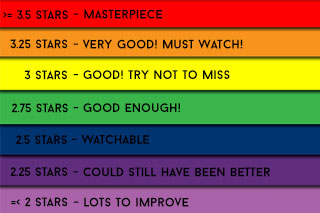LAABAM MOVIE REVIEW

Laabam is a political film written and directed by SP Jhananathan. It has Vijay Sethupathi and Shruti Haasan in lead roles, while Kalaiyarasan, Jagapathi Babu, Ramesh Thilak and others play crucial supporting roles. The film is produced by P Arumugam under the banner 7Cs Entertainment and Vijay Sethupathi Productions.
Vijay Sethupathi plays the role of Pakkiri, who returns to his village after a gap of 6 years and decides to contest the village Farmers Association elections. While he wins unopposed after his rival faction led by Jagapathi Babu withdraws from the elections, despite becoming the leader, he gets to know that the association is indirectly under Jagapathi's control. How he manages to stabilize the lives of the villagers and raise the standards of the working class, despite opposition from the capitalists, forms the rest of the plot.
On paper, and as an idea, Laabam is a fantastic film. Director SP Jhananathan is known for his Marxist perspective in films and he uses this as a tool to propagate the principles of Marxist economics. The issue addressed in the film is important as well.
Unlike other films that talk about the plight of farmers, Laabam delves deep into the issue. This is probably the first film in Tamil that reflects how the system treats landless farmers, farmers with less than 2 acres land, small scale farmers and landlords differently.
In addition to this, the film portrays how the ruling class control the State comprising of the government, police and the judiciary, and exploit the working class people. All these are the basics of Marxist Philosophy and the film handles this pretty well.
Among the performances, Vijay Sethupathi shines in another cakewalk role, while other performers like Shruti Haasan, Ramesh Thilak and Kalaiyarasan perform decently. Jagapathi Babu plays the stereotypical corporate villain but all their roles have some meat, irrespective of the screen time.
To talk about the things that don't work in the film, there's a need to quote Communist leader Mao Tse Sung, "In art criticism, there are two criteria - Political and artistic. What we demand is the unity of politics and art, the unity of content and form, the unity of revolutionary political content and the highest possible perfection of artistic form. Works of art which lack artistic quality, have no force, no matter how progressive they are politically."
SP Jhananathan's Laabam falls short on the latter part. The technical part of the film is inconsistent, has a few flaws and that disconnects it from the audience. Therefore no matter how well the intent and politics of the film is, reaching the masses properly is a question left unanswered, especially when the film ends with the tagline "All art and technology is for the masses." One aspect that must be appreciated is director SP Jhananathan's dedication to his ideologies and sticking to it till the end, and he'll be remembered for it.
LAABAM VIDEO REVIEW
BEHINDWOODS REVIEW BOARD RATING
REVIEW RATING EXPLANATION

LAABAM NEWS STORIES
RELATED CAST PHOTOS
சுடுகாடு வரை சென்ற VIJAY SETHUPATHI - JANANATHAN-க்கு கண்ணீருடன் இறுதி அஞ்சலி செலுத்திய பிரபலங்கள்! VIDEOS
OTHER MOVIE REVIEWS
LAABAM RELATED NEWS
- Late Director SP Jananathan And Vijay Sethupathi's Powerful ...
- Vijay Sethupathi's LAABAM Current Update Post Director SP Ja...
- Vera Level! Superstar Rajinikanth Leaves Us Swooning With Hi...
- 100 Top Celebrities Unveiled The Interesting FIRST LOOK & TI...
- Vera Level BREAKING: Vetri Maaran's NEXT Biggie's Shoot Plan...
- அப்றம் ஏன் இந்த மனுசன ...
- LATEST: விஜய் சேதுபதி நடிக...
- Ultimate Addition: This Vijay TV Serial Actress Officially C...
- "வாழ்க்கையே ஒரு BiggBoss தான...
- Transformation Level Max! Popular Actress-singer's Pictures ...
- Vijay Sethupathi’s Much-awaited Political Drama’s TRAILE...
- LATEST: விஜய் சேதுபதி நடிக...
- “Elimination ரவுண்டுனு தெரிய...
- Terrific! TRAILER Of Vijay Sethupathi And Taapsee Pannu's Ho...
- சூப்பரோ சூப்பர்: விஜய்...
LAABAM RELATED LINKS
- Laabam - Vijay Sethupathi | Grab Your Popcorn! Here's A List Of Tamil Films Expected To Release In Theatres This Year! - Slideshow
- THE UNIQUE MAN VIJAY SETHUPATHI IN TOON APP | CELEBRITIES NEW LOOK IN TOON APP IS AMAZING - Slideshow
- Composer D Imman's Condolence Message | RIP: KV Anand's Demise: Kollywood Stars Offer Condolences - Story In Pics! - Slideshow
- Shruti Haasan's Reply To "When You Will Marry" Question | RARE Pics From Shruti Haasan's Life: Actress Answers Fans Questions With Photos In Her Own Style - Must See! - Slideshow
- Shruti Haasan's Favorite Throwback Pic | RARE Pics From Shruti Haasan's Life: Actress Answers Fans Questions With Photos In Her Own Style - Must See! - Slideshow
- Ka Pae Ranasingam - Videos
- Vijay Sethupathi, Surya Vijay Sethupathi (Sindhubaadh...) | Vikram & Dhruv In Chiyaan 60: Revisiting Celeb Father-son Pairs On Screen In Tamil Cinema! - Slideshow
- Shruti Haasan - Vedalam | Rajinikanth, Vijay, Ajith To Jo - When Actors Fought For The Right - Slideshow
- Vaayadi Petha Pulla - 162 Million Views | Top Blockbuster South Indian Songs Of This Decade - Slideshow
- Kannaana Kanney - 118 Million Views | Top Blockbuster South Indian Songs Of This Decade - Slideshow
- Shruti Haasan And Akshara Haasan | Celebrities With Their Parents, Compilations Of Cute Moments! - Slideshow
- Vijay Sethupathi - Thenmerka Paruvakatru (Tamil) | #ThrowbackThursday: Revisit Those Moments When Your Favorite Heroes First Appeared Onscreen! - Slideshow
- Shruti Haasan - Luck (Hindi) | Then & Now: Debut Movie Pics Of Your Favorite Heroines Who Stole Million Hearts! - Slideshow
- Ajith & Vijay Sethupathi | Who Can Be The Best Combo In Tamil To Play Ayappanum Koshiyum? - Slideshow
- Madhavan & Vijay Sethupathi | Who Can Be The Best Combo In Tamil To Play Ayappanum Koshiyum? - Slideshow







































